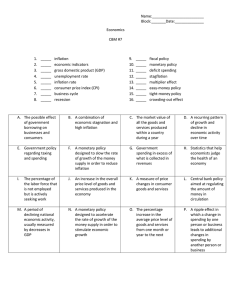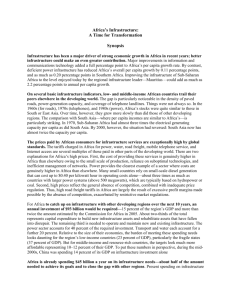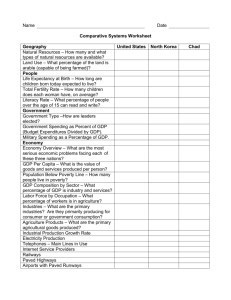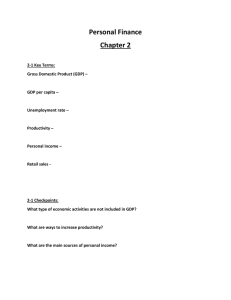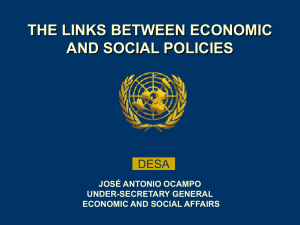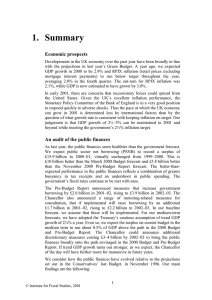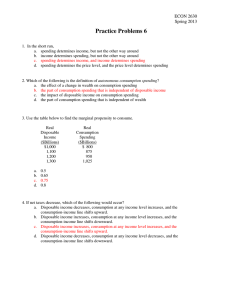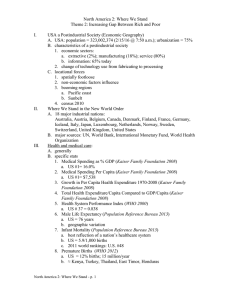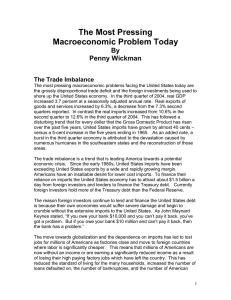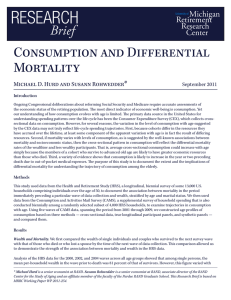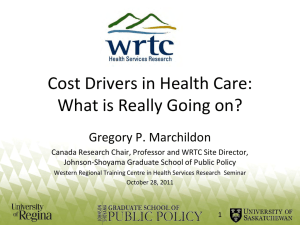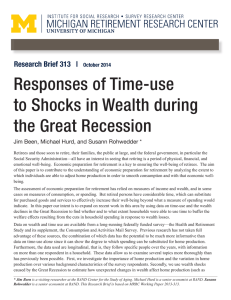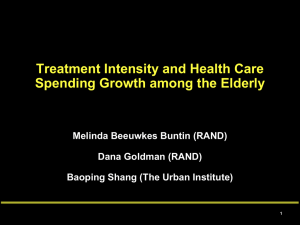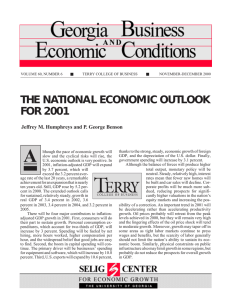Costs and Benefits of Economic Growth
advertisement
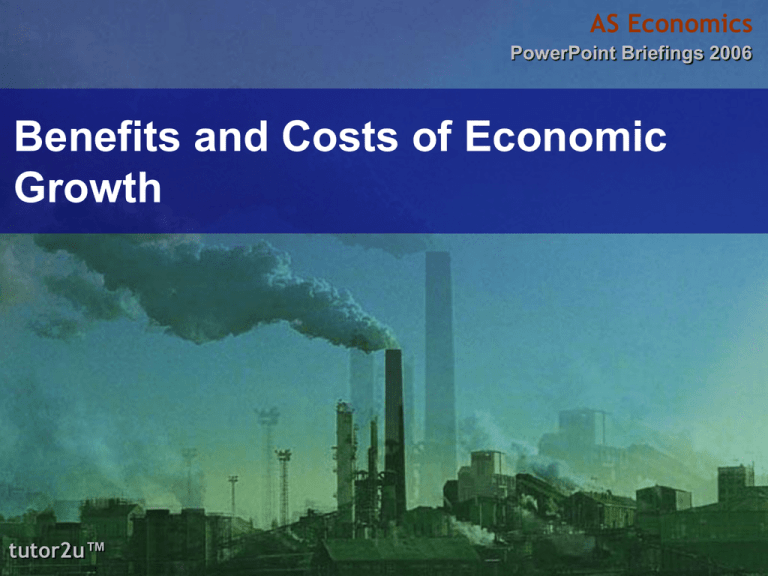
AS Economics PowerPoint Briefings 2006 Benefits and Costs of Economic Growth tutor2u™ UK Economic Growth Growth of National Output for the UK Annual percentage change in GDP at constant prices 6 5 4 3 Percent 2 1 0 -1 -2 -3 -4 -5 80 81 82 83 84 85 86 87 88 89 90 91 92 93 94 95 96 97 98 99 00 01 02 03 04 05 06 ar 4 quarters Source: Reuters EcoWin Economic benefits from growth More tax revenue Higher investmen t Consumer confidenc e Benefits of Economic Growth • Boosts average living standards through higher real GDP per head – important in reducing poverty • Increased output generates new jobs and reduces unemployment • Good news for shares and the housing market – boosting household wealth • Increased tax revenues for Government – growth provides a “fiscal dividend” – can be used to fund extra public spending • Improved business confidence – attractive to foreign investment inflows • Higher consumer demand can lead to higher investment • Growth acts as spur to introduce new technology (the virtuous circle of growth) which spurs further innovation Income and spending per head Consumer spending and disposable income in the UK Spending and income per head in real (inflation adjusted) terms, £ 000s per head at constant 2001 prices 13 12 2001 GBP (billions) 11 Disposable income per head 10 9 Consumer spending per head 8 7 6 80 82 84 86 Consumer spending 88 90 92 94 96 98 00 02 04 Disposable income Source: Reuters EcoWin Risks from Economic Growth • Environmental impact – Depletion of non-renewable resources – “resource poverty” – Concern about sustainability of growth for future generations – Increased levels of pollution / waste / congestion • Increasing inequalities in income and wealth – Widening gap between rich and poor – The “Wealth Gap” – i.e. a richer society but with higher levels of relative poverty • Unbalanced growth – danger of inflation – Risk of inflation if aggregate demand is too strong – Increased demand for imports – larger trade deficit GDP per capita in 2004 GDP per capita ($) Luxembourg 57 704 EU15 28 741 United States 39 732 Germany 28 605 Norway 38 765 Italy 27 699 Ireland 35 767 Spain 25 582 Switzerland 33 678 Korea 20 907 United Kingdom 31 436 Czech Republic 18 467 Canada 31 395 Hungary 15 946 Australia 31 231 Slovak Republic 14 309 Sweden 30 361 Poland 12 647 Japan 29 664 Mexico 10 059 France 29 554 Turkey 7 687 Economic Growth and the Environment • Some economists believe that growth provides a basis for environmental improvements – As per capita incomes rise, a share of the new wealth can be used to buy cleaner fuels like natural gas – Higher real household incomes are associated with lower fertility rates which has an impact on the natural rate of population growth – Richer countries also have the resources to devote research and development – The positive spill-over effects of R&D might include the development of cleaner and less resource-intensive production technologies Growth Pessimists • Questions over the long-term sustainability of growth • Renewable resources depleted – The Tragedy of the Commons – Examples include the destruction of rain forests, the overexploitation of fish stocks and loss of natural habitat created through the construction of roads, hotels, retail malls and industrial estates • Growth contributes to growing environmental threats – Expansion of waste from both production and consumption – Over-population (particularly in urban areas) putting increased pressure on scarce land – Pollution of the environment both by producers and consumers including reductions in air quality – Species extinction The environmental cost of growth?

